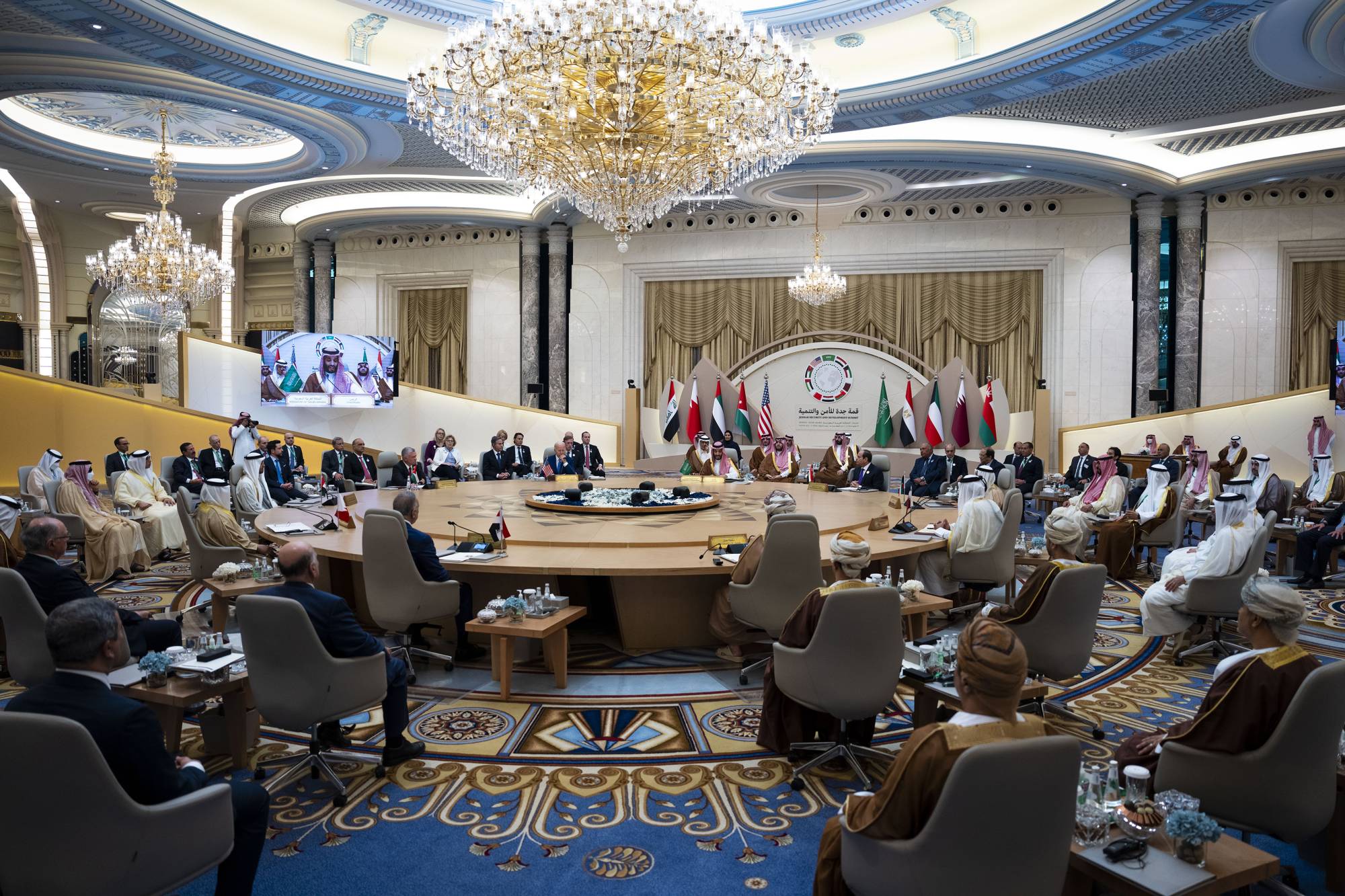During his painful encounters with a series of Arab strongmen here in Saudi Arabia this weekend, U.S. President Joe Biden kept returning to a single reason for renewing his relationship with U.S. allies who fall on the wrong side of the struggle he often describes as a battle between "democracy and autocracy.”
"We will not walk away and leave a vacuum to be filled by China, Russia or Iran,” Biden said at a session Saturday with nine Arab leaders in a cavernous hotel ballroom in this ancient port on the Red Sea. "And we’ll seek to build on this moment with active, principled American leadership.”
Biden’s framing of America’s mission as part of a renewed form of superpower competition was revealing. For decades, American presidents largely saw the Middle East as a hotbed of strife and instability, a place the United States needed a presence largely to keep oil flowing and eliminate terrorist havens. Now, more than 20 years after a group of Saudis left this country to stage terrorist attacks against the World Trade Center and strike the Pentagon, Biden is driven by a new concern: That his forced dance with dictators, while distasteful, is the only choice if his larger goal is to contain Russia and outmaneuver China.



